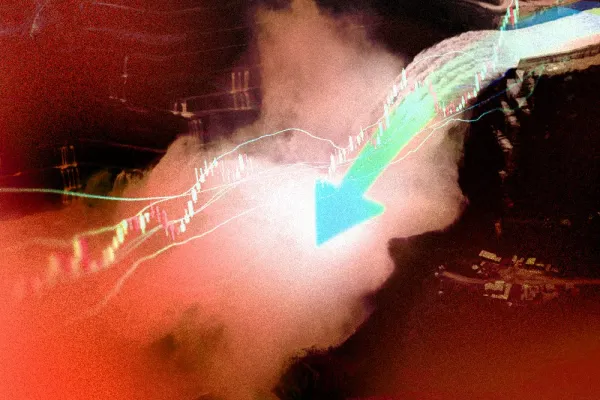Dan Zwirn thought markets were frothy for at least five years before the pandemic.
His credit shop, Arena Investors, underwrote investments as if a crisis was on its way and diversified so any one deal wouldn’t have an outsize impact on the portfolio.
“Frankly a lot of stuff that got hurt was very overdone going into Covid. But people didn’t let us into those clubs in the first place,” Zwirn said in an interview. “There were no 18 percent office loans available, so we were not exposed. That gave a lot of people comfort that this is what the downside looks like.”
So far, his approach has worked out, according to the Arena CEO and chief investment officer’s latest letter to clients.
“Covid was a great stress-test of our approach, and we were left in a position to quickly shift to playing offense once we had taken stock, battened down the hatches, and appropriately assessed the small impact to our book,” Zwirn wrote in the investor letter.
Since 2015 Arena has made more than 200 privately negotiated and structured convertible investments worth $2.5 billion. As of the end of 2020, Arena had fully exited 109 investments with a realized gross internal rate of return of 17.9 percent, according to the letter. Five holdings generated a loss of about $4 million. The portfolio has generated positive results in 60 of the 63 months since inception, according to the letter.
[II Deep Dive: Dan Zwirn on the State of Credit: ‘Amend, Extend and Pretend’]
While Arena has been busy, Zwirn is still highly cautious right now.
“Many of these beneficiaries are able to assert that the current issues they are facing are temporary, and then raise capital and hope for a sunnier day while investors can ‘flip the tulip’ to the next buyer,” he wrote. Once vaccination is widespread, Zwirn asserted, investors and companies will have to face reality. Zwirn said in the letter that markets may soon have their ‘Minsky Moment,’ referring to the late stage of an economic cycle when asset prices drop as investors panic.
Speaking to Institutional Investor, however, Zwirn said he’s not a forecaster and never invests like he can predict what will come next.
“We only look as far as the end of our nose with these very short durations,” he said. “Investors habitually underprice duration. The longer I’m outstanding, the more put options I’m short, so am I getting compensated? That’s why our stuff on average has a two-year duration, because we don’t know what the future will bring. I need to have that value disparity and be able to crystallize it quickly.”
In the letter, he added an extreme example of underwriting as if there will be a crisis. “If we were lending against a cruise ship, we would not be estimating tourism levels or the market share dynamics across cruise companies,” he wrote. “Rather, we would estimate the ‘value of the metal’ (inclusive of the costs of having the ship scrapped). And, there has to be an actual path to liquidity.”
Zwirn also spent a section of the letter addressing value investing, a style that has been famously underperforming in the public market. “True value investing is certainly also in privately negotiated transactions that could involve public markets,” he said in the interview, noting that Arena does private convertible issuances for public companies.
The credit investor argued in the letter that value investors generally seem to buy investments with a large margin of safety to their projections of the company’s value and “then just ‘watch it’ (and/or ‘promote’ it) – hoping that the collective market will align to their view, such that they can profit.”
In contrast, Arena doesn’t want to wait for the market to come around. Zwirn wrote that his firm uses a combination of tough standards on the front end and the right structure, including short duration, seniority in the capital structure, and covenants that protect them.
“Regarding our exit point, we do not want to rely on the ‘long-term weighing machine’ of markets to realize our assessment of value, but rather, in every investment, we want to be ‘cigar butt’ indifferent between being repaid or taking control of the asset (where taking control may result in a better outcome, as has generally been the case, although certainly with more time and bandwidth required),” he wrote.







